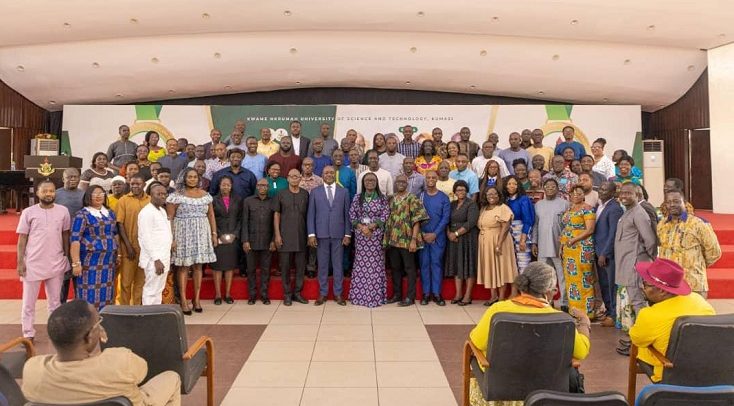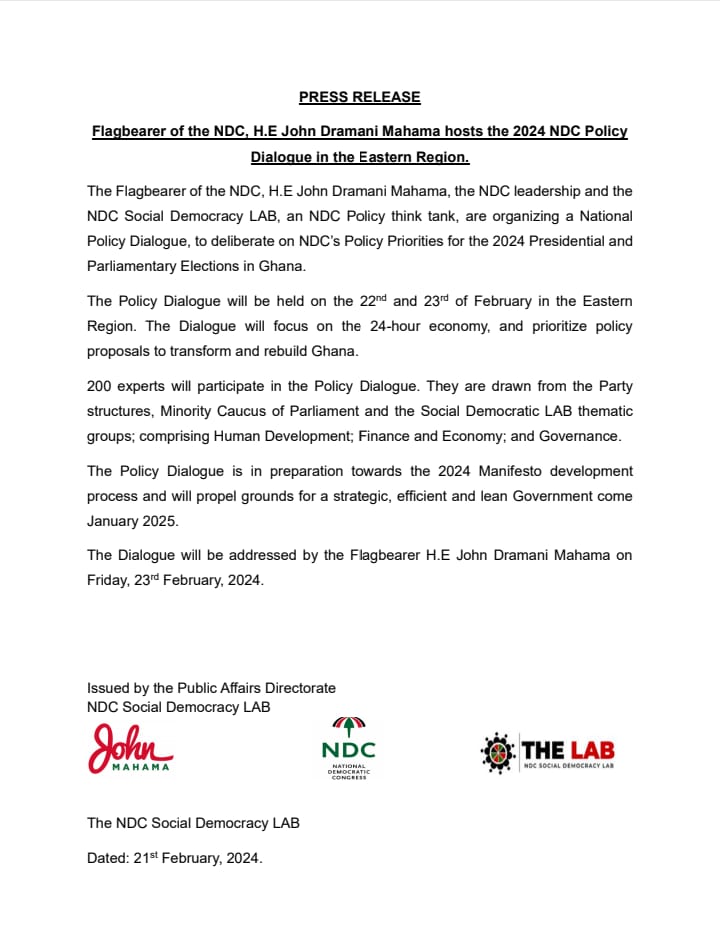
Appollo — A two-day policy dialogue on petroleum up stream governance has ended at Apollo in the Effia Kwesimintsim Municipality of the Western Region.
It had the theme: 'Main streaming resource governance at the sub-national level; Bridging the gap between maximising petroleum revenues and ensuring environmental sustainability.'
The dialogue was attended by participants from local government authorities, regulatory institutions, traditional leaders, Civil Society Organisations, (CSOs), community environmental advocacy groups and oil and gas companies.
Organised by Friends of the Nation (FON) in collaboration with the Deutsche Gesellschaftfür Internationale Zusammenarbeit (GIZ) GmbH and other partners, the programme sought to identify the gaps and make recommendations for better management of environmental issues associated with the petroleum industry.
It also identified improved ways for greater involvement of sub-national governance actors such as district assemblies, community-based organisations and traditional leaders in the allocation and utilisation of petroleum revenue, share experiences on environmental issues and gaps in existing laws and mapped a way forward for civil society engagement on environmental governance in the sector.
Mr Solomon Ampofo, who spoke on behalf of the Executive Director FON, noted that in 2007 when Ghana discovered oil and gas in commercial quantities off its western coast, the potentials of the industry was huge whiles expectations were also high among the people, who hoped to benefit from the petroleum industry.
He said total revenue accrued so far to the state was more than US$4 billion, adding that, apart from the Jubilee Field, 24 more discoveries had been made.
"The Ghana National Petroleum Corporation is currently pursuing a 5-year initial exploration phase (2015 -2019) with the view to leading onshore exploration in the Basin to determine the thermal maturity of potential source rocks. " Mr Ampofo said.
He told the participants that to ensure Ghana was in a better position to maximise benefits from the petroleum sector, significant efforts had been made in sound governance, including transparent and efficient management of petroleum revenues.
For example, he said that the Petroleum Revenue Management Act 2011 (Act 815), as amended by Act 893, 2015; Petroleum Commission Act 2011 (Act 821) and Petroleum (Exploration and Production) Act, 2016, 919 had been enacted by Parliament while the Local Content and Local Participation Regulations have also been passed by Parliament.
Again, a National Oil Spill Contingency Plan has also been formulated to provide the framework for co-ordination of an integrated response by government agencies and relevant stakeholders to protect the environment from the toxic effects of pollution from spillage of oil substances.
Mr Ampofo said "These efforts have been lauded as signs of a country working hard to avoid the curse of oil, as experienced in many oil producing countries in Africa, where oil and gas resources have brought conflicts, corruption, and poverty."
Despite the benefits, including tightening the legal and regulatory framework, livelihoods, social and economic systems, Mr Ampofo noted, that, the oil-driven growth in urban areas has led to rapid increases in cost of living for the urban poor.
Participants urged a national consensus on ways to better allocate and utilise petroleum revenues that reflect the needs of the citizenry and ensure effective monitoring by sub-national actors.
Solomon Ampofo addressing the participants
Read Full Story

























Facebook
Twitter
Pinterest
Instagram
Google+
YouTube
LinkedIn
RSS